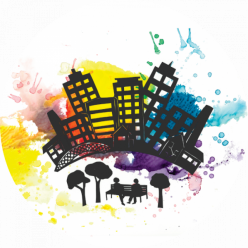“When the Transforming Stories team came to us, we were part of an advisory committee that advised a larger committee that supports women who were facing homelessness. So, there were two co – chairs and 8 members. City employees we worked with introduced us to people at McMaster’s Social Work and Theatre departments. And they came in, talked to us about the project and asked us what we thought about it. And we were like, yeah let’s go for it. Why not? We came to educate and inform. That’s one of our primary objectives to inform about the gaps in the system, to provide the women’s perspective.”
— Jones
Editor's note: 'Jones' is a pseudonym chosen by one of our anonymous project participants. Every now and then we will hear from our participants about their experiences of Transforming Stories, Driving Change.
What is your role on the project?
I performed as one of the characters who had all of these experiences. Life happened. She was unable to go back to work or continue work, and she was then beginning to face all of these challenges: losing her family, having a marriage dissolved, and all these other things. Some of the information we used in the skit is not only ours, the people performing in the play, but it’s also our friends, people who we’ve talked with, people who have shared stuff with us. So, the stories come from different voices. These stories are a combination of all these different experiences. And I think that was powerful because you realize how similar we are, that we all walk on this path. We think that we’re just alone, but then when you start talking about it you start realizing, oh man there something wrong here! All of these experiences are like my experience. Something must be wrong. So we kinda brought all those stories together. There is a little bit of us in there. But not so much so. It is actually saying what is happening out there. It’s sharing stories.
Have you ever use arts approaches before to share these stories?
No! No! Not like this. We have not! And that’s the beauty of this project because I didn’t go to drama school. I don’t know much about acting or anything like this. It was nerve-racking! Right? But we had good mentors, directors and teachers. They were just awesome. And it all came together with us telling these stories. It was fascinating!
For a person who does not know Transforming Stories how would you describe the project to them?
It’s like sitting around a fire and talking about life, school, health, relationships and stuff. You are relaxed! You’re calm. You are venting, not really venting, but just talking about stuff. You are reminiscing.
I remember the first time we sat down together, we were told to bring an object or two that meant something to us. We sat in a circle and explained what that object was. For me personally, that story circle reminded me of my grandmother. Because grandmama would always sit with us and have this chitchat. This comes from my culture. But the theatre director was saying this approach is common in Indigenous cultures too, this story sharing. And I thought they do this too? I guess were all the same.
And it brings a sense of community. Because you are in a circle. There’s nobody above or below. We are one. And I think that’s kind of sets up this catalyst of actions. All the women in our committee, ten of us, we were open about stuff and sharing stuff. And a lot of stuff came out when we were doing this. And that evolved into something else.
So, let me make this short, Transforming Stories is basically telling your story from your perspective without pointing fingers. Because you know, it’s experience. It’s not to make anyone feel bad. It’s not about making anybody feel sorry. But it’s sharing. We are sharing it from a place of truth. It’s not like I’m going to tell you what you want to hear because of your position. It’s more like what I’m going to tell you irrespective of your position. I think the Transforming Stories process takes away the shame. It takes away the pressure. We get down to the nitty-gritty. I think it is a very powerful way of communicating issues.
I hope, this is my hope, I think Transforming Stories should go on. I don’t have anything against town halls, but I’m hoping that we have Transforming Stories about different topics, and have people come around and talk. Let’s have a discussion. Let’s chit chat.

